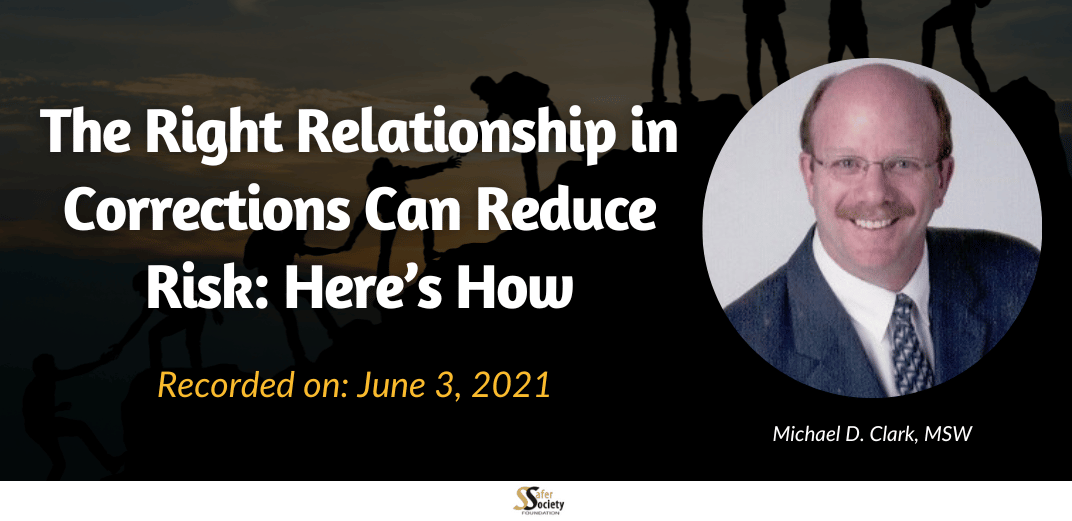
The Right Relationship in Corrections Can Reduce Risk: Here’s How
This webinar is for professionals in the field of community corrections, such as probation and parole officers, as well as individuals involved in offender assessment and rehabilitation.
The jury is back in on what kinds of approaches can help reduce crime, make our communities safer, and build better lives along the way. Newly published findings report that 45% of all state prison admissions in the United States are due to violations of probation or parole—by way of new offenses or technical violations. Community corrections has become a paradox, not only failing in its mission to divert and remediate but making matters worse.
This commentary focuses on the direct practice of probation and parole officers, as they exert much influence on decisions to punish. It identifies groups that willfully contribute to this “prison pipeline.” This conversation focuses on how empowering risk-need-responsivity approaches with Motivational Interviewing, ending with a discussion of the benefits that caused Motivational Interviewing to be deemed a good fit for community corrections.
Who's Presenting

Michael D. Clark, MSW
Michael D. Clark, MSW, has served as a probation officer and magistrate in Lansing, Michigan. He is a member of the Motivational Interviewing Network of Trainers (MINT) and is the director of the Center for Strength- Based Strategies, a technical assistance group that offers training in Motivational Interviewing to the corrections, addictions, and mental health disciplines. Mr. Clark has recently served as a contractual consultant to the United Nations Office on Drugs and Crime in Vienna, Austria, and is coauthor of the book Motivational Interviewing with Offenders: Engagement, Rehabilitation, and Reentry, published in 2017 by Guilford Press.
